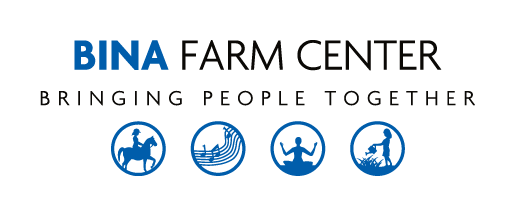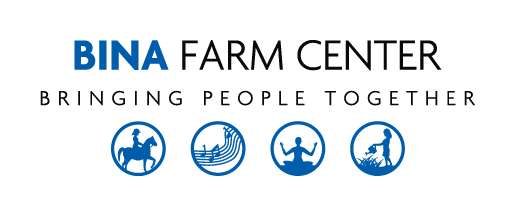Equine-Assisted Therapy
Our Equine-Assisted Therapy programs include Equine-Assisted Mental Health Services and
Occupational & Physical Therapy Utilizing Equines. Both are provided by a licensed therapy professional
who works within the scope of practice of their particular discipline to provide these therapies.
Equine-Assisted Mental Health Services
Equine-Facilitated Psychotherapy (EFP) is one of the Equine-Assisted Mental Health Services our therapists provide. It has the same goals and characteristics as traditional psychotherapy but incorporates connection with an equine to facilitate progress and healing. Participants do not need any previous experiences with horses to participate in EFP.
-
Services typically take place outdoors, not in a traditional clinical setting and offers a hands-on approach.
Communication: EFP differs from traditional talk therapy in that horses are nonverbal, but their body language is understandable, and as herd animals they enjoy connection.
We use a wide variety of unmounted equine activities such as: observation - inward reflection
handling for confidence building
grooming for emotional grounding
leading for enhanced connection
lunging for presence & awareness
-
Individuals experiencing:
Trauma - PTSD
ADD & ADHD
Addiction - Depression
Eating disorders
Anxiety
Many other mental health challenges or diagnosis'
-
Concentration, selflessness, and teamwork, are potential attributes enhanced when working with horses.
Goals may include, improved self-esteem, self-awareness, confidence and empathy, which are fundamental aspects of emotional intelligence.
These skills are not only beneficial during therapy, but also translate into real-world applications. For example, developing trust may help mend strained relationships, while enhancing communication skills might aid in resolving conflicts in a healthier manner.
-
EFP sessions may be led by:
A licensed, credentialed Mental Health Professional who is also a PATH Intl. Certified Equine Specialist in Mental Health and Learning.
Or, a licensed, credentialed Mental Health Professional, works alongside a PATH Intl. Certified Equine Specialist in Mental Health and Learning (ESMHL).
Clients should continue their relationship with their primary psychotherapist while enrolled in this program.
-
BINA Farm Center does not work directly with insurance providers for any of our programs; however, some participants in the Equine-Facilitated Psychotherapy Program have had success with reimbursement. We recommend calling your insurance provider to determine if this is an option for you.
Occupational & Physical Therapy Utilizing Equines
Occupational & Physical Therapy Utilizing Equines (Hippotherapy) refers to how occupational & physical therapists or speech language pathologists use the purposeful manipulation of equine movement as a therapy tool to engage the sensory, neuromotor and cognitive systems and promote functional outcomes. It is just one of the tools or treatment strategies that a therapist may use to help a client reach their goals.
-
Equine movement addresses functional therapy goals as part of a patients integrated rehabilitation plan of care.
A horse’s movement provides symmetric, graded, rhythmic, consistent input that can help facilitate postural control, balance reactions, trunk strength, tone management, motor planning and endurance. A participant sitting astride a horse experiences a weight shift similar to a normal human gait, but may also have the opportunity to experience novel input as the therapist carefully manipulates the horse’s movement, changes the orientation of the participant or integrates another activity.
Equine movement is continually modified during a treatment session based on the client’s response, individual needs, and rehabilitation progress.
-
Participants 2 years old and up may be eligible to utilize this tool in a treatment session. Appropriate individuals may have the following diagnoses and/or impairments:
Cerebral Palsy
Down Syndrome
Developmental Delay
Genetic Syndromes
Traumatic Brain Injury/Stroke
Autism Spectrum Disorder
Muscular Dystrophy
Multiple Sclerosis
Cognitive disabilities
Impaired mobility
Impaired balance
Impaired coordination
Impaired postural control
Abnormal muscle toneIndividuals as young as 2 years old through adulthood.
-
Hippotherapy may help to integrate all the systems of the body and potentially generate improvements in:
functional mobility and gait
sitting, standing and dynamic balance
postural alignment/symmetry and core strength
functional and cardiovascular endurance
coordination and muscle tone
gross motor skills
respiratory control
balance confidence and self esteem
-
BINA Farm Center does not work directly with insurance providers for our programs, however, some participants in the Hippotherapy Program have had success with reimbursement for their Occupational or Physical Therapy if their insurance covers the therapy. We recommend calling your insurance provider to determine if this is an option for you.
BINA Farm Center in collaboration with Mass General Brigham McLean Hospital
hosted women with trauma histories to try a new type of therapy. Dr. Sherry Winternitz
summarized by saying:“I’ve been working with survivors of childhood abuse for
the last 30 years, and I have never seen anything with such immediate benefit
to folks who struggle with trauma-related issues.”


